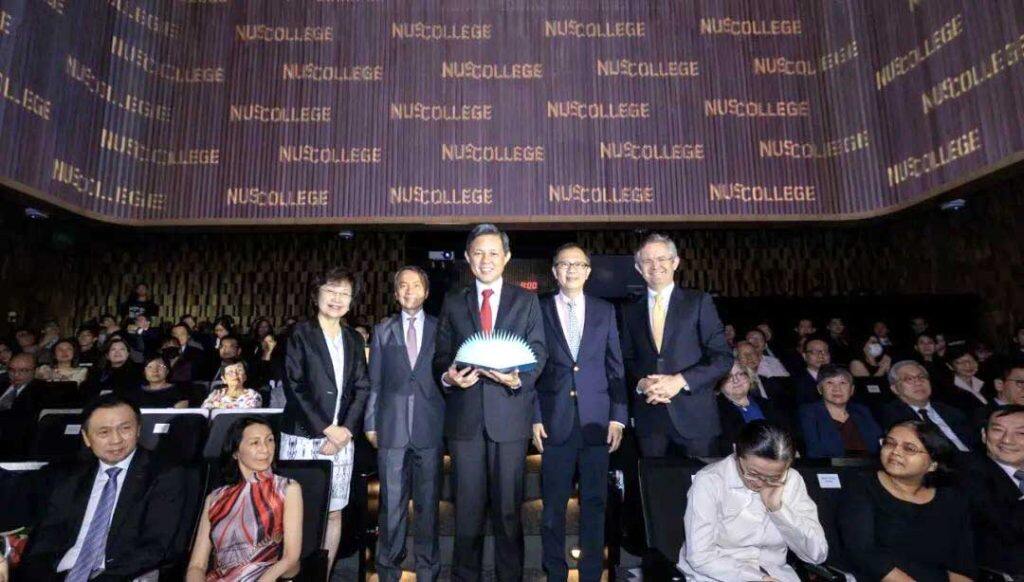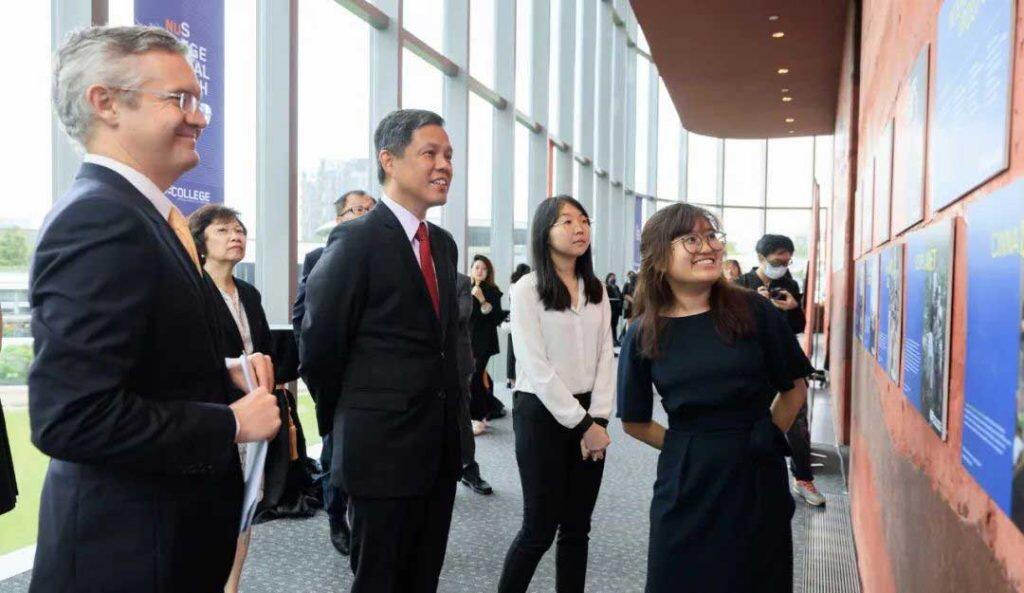Singapore, 20 February 2023 – NUS College, Singapore’s first honours college, celebrated its official launch at the National University of Singapore (NUS). The College, which welcomed its pioneer batch of first-year students in August last year, is the University’s third and latest interdisciplinary college to further expand interdisciplinary learning opportunities for undergraduate students.


NUS College has designed a broad-based interdisciplinary common curriculum with small class-size teaching. Fully integrated into the larger NUS ecosystem, its students have access to the full range of majors, minors, specialisations and other programmes, as well as facilities and opportunities across the university. The College takes in around 6% to 7% of each year’s incoming undergraduate cohort across the whole of NUS and offers a rich, personalised experience for students, with a strong residential component.
The launch was attended by Minister for Education, Mr Chan Chun Sing, as Guest of Honour, together with NUS Chairman, Board of Trustees, Mr Hsieh Fu Hua, NUS Senior Deputy President and Provost Professor Ho Teck Hua, NUS College Rector Professor Cheong Koon Hean, and NUS College Dean Professor Simon Chesterman, students, faculty and staff of the College.
NUS President, Professor Tan Eng Chye, said, “NUS College was set up as a new school within the National University of Singapore to offer students more opportunities for interdisciplinary academic rigour with a strong focus on real-world knowledge and skills, as well as the ability to apply them outside the classroom. I am heartened to see that the College has made a strong start, with students from diverse academic, socio-economic and cultural backgrounds living, learning and growing together.”
Special Programmes to anchor students’ experiential learning
Each NUS College student belongs to a disciplinary faculty where they will pursue their chosen major in depth and earn their degrees. These students will read about one-third of their curriculum in the College, where they will be immersed in real-life community issues, understand the complexities involved and develop innovative solutions through a flagship capstone programme called Impact Experience (IEx). The two-year IEx programme empowers students to explore and get involved in causes that they are passionate about and ultimately bring about a lasting positive impact in the community.
More than 380 students from NUS College’s first cohort will form teams to work on over 60 IEx projects, spanning social causes such as environmental and cultural conservation, healthcare and housing accessibility, as well as diversity and inclusivity in both local and regional contexts. One-third of these impact projects will be rooted in Southeast Asia – including Thailand, Malaysia and Cambodia – and students will begin working on them in the second half of this year.
Minister for Education Mr Chan said, “Graduates today are entering a world that is more connected, and yet more fragmented. They need the skillsets and the mindsets to remain competitive and thrive in such complex environments. I am pleased that NUS College is preparing our graduates to address these challenges through experiential and interdisciplinary learning, industry attachments, and global pathways. In particular, I would like to encourage the College and its students to cultivate strong ties with ASEAN, and develop a better understanding of our region.”


In addition to IEx, NUS College’s Global Experience (GEx) programme was also showcased at the launch. Students will embark on field trips, attend masterclasses and learn from academics, researchers, entrepreneurs, start-ups, and community institutions in global cities around the world, focusing on specific themes such as ‘environment and sustainability’ in Stockholm, ‘media, finance and diplomacy’ in New York City, ‘arts and social innovation’ in Paris, ‘diversity and inclusivity in governance’ in Toronto, and ‘city, culture and technology’ in Tokyo. The College plans to expand these options in the coming years, to Mekong, Java, and other urban regions, with a focus on Southeast Asia.
Along with bespoke internship opportunities, student exchanges with honours and liberal arts colleges around the world, and Double Degree Programmes with Sciences Po and Waseda University, GEx expands the students’ global learning pathways and offers flexibility in fulfilling the overseas immersion requirement during their time at NUS College.
Enhancing the residential experience
Residential living and learning is a distinctive component of the unique NUS College experience. Students will stay for at least two years in the College’s residential wings, where they will be encouraged and empowered to build communities that will enrich their experiences, maximise learning opportunities, and forge lifelong friendships.
At the launch, Prof Chesterman announced that NUS College will guarantee residency on campus for the first three years, or more for students without a home address in Singapore. He said, “Community comes first. Residency is a way of capturing conversations that spill beyond the four walls of the classroom, as well as embedding our students in a supportive and stimulating environment – hopefully making friendships that will last a lifetime.”
Ms Jane Ho, a first-year student pursuing a double major in Business Administration and Economics, and a minor in Quantitative Finance, said, “The network of friends I’ve formed living on campus at NUS College has been a great support in helping me overcome any doubts I had taking on a minor for my undergraduate degree. Many of us are also pursuing a major and a minor, and the extra time we spend together talking through our challenges and encouraging one another has been a rewarding experience so far!”
NUS College expects to admit between 400 to 500 students every year.







































